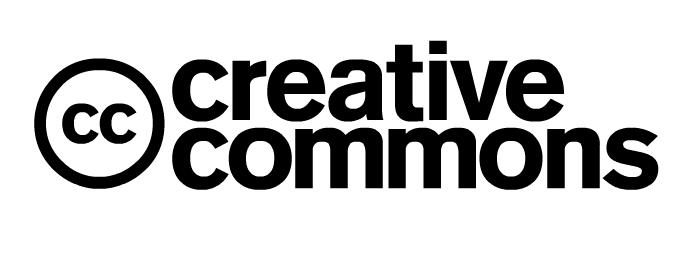Didache Volume 20 Number 2
Introduction
Dean G. Blevins, Editor
Greetings and Welcome to Didache: Faithful Teaching a publication dedicated to exploring theology, culture, and pedagogy in the Wesleyan Tradition. The edition concludes twenty years of publication. This edition offers an interesting array of faculty research, Presidential reflections, and student contributions. The edition opens dealing with diversity in theological education and closes addressing diversity in a theological movement, missional theology. In the middle of the volume addresses various topics from economics, to ecology, to online streaming, and finally to an interesting conversation with Danish theologian, Søren Kierkegaard.
The edition opens with Dr. Benjamin Espinoza of Roberts Wesleyan University addressing diversity, particularly the experiences of Latinx scholars in predominant White institutions. Dr. Espinoza draws from Nishinti Osamu’s conceptualization of Anthropos and Humanitas as one explanatory system to understand how White European humans (Humanitas) created a colonial world order which tended to discard or colonize others (Anthropos). Dr. Espinoza then documents how Latinx theological educators resist this vision of Humanitas as they work to legitimize their own labor while creating a space for their own survival and thriving by humanizing Anthropos.
The edition then turns to the economic survival as well as the thriving of ministers. Nazarene Theological Seminary President Jeren Rowell provides an academic address given at the Northwest Nazarene University Wesley Conference addressing The Economics of Vocational Ministry: Living at the Crossroads of Affordability and Calling. Dr. Rowell’s address acknowledges the myriad economic challenges facing ministry, but also draws upon the writing of John Wesley to demonstrate a call to pastors, but also to the congregations called to support ministers. Rebekah Corner then shifts the conversation from economics to ecology, particularly the challenge of climate change. Ms. Corner fashions a Biblical response to this issue, a hermeneutic that encompasses both ecology and social justice. Ms. Corner’s work comes by way of NTC Manchester, and we are grateful to have the writing recommended by Dr. Svetlana Khobnya.
The next two papers may reflect the real range of engagement possible in Didache: Faithful Teaching. Paul Harding, from Mount Vernon Nazarene University, offers an intriguing treatise on how three online streaming communities, Leonhart, Critical Role, and CohhCarnage, offer insights on the nature of community that might inform the church in the future. Originally written with the COVID pandemic in mind (an extension of our previous edition), Harding’s work really offers more substantive thinking around the interplay of technology and community for the future. Our thanks to Dr. Janice Duce, a researcher in technology, media, and ecclesiology, for reviewing and noting the long-range implications of Mr. Harding’s work. Nazarene Theological Seminary student Patrick Taylor then brings the future back into a conversation with the past. Taylor’s writing invites participants in the missional theology movement (a relatively new theological endeavor in the United States) into conversation with one of the great Danish theologians of the previous two centuries, Søren Kierkegaard. Taylor acknowledges that many readers might not think of Kierkegaard and mission in the same sentence. However, Taylor endeavors to show that Kierkegaard, far from being unrelated to mission, offers a missional praxis of witness for the church today and especially for the Church in culturally-Christian contexts. Our thanks to Dr. Josh Sweeden, Dean of the Faculty at Nazarene Theological Seminary for his review and recommendation.
Karla Sanchez-Renfro closes the edition by returning to the theme of diversity and particularly inclusion. Her writing, also as a student of Nazarene Theological Seminary, challenges the same missional theology movement by asserting those participating must create more inclusion and equality at all levels of participation. Ms. Sanchez-Renfro believes this inclusion proves vital if the movement wants to faithfully embody the gospel and encourage all to "fully participate in God's mission.” Ms. Sanchez-Renfro’s challenge reminds us all that there is more work, and more voices, needed in our mutual theological task. My thanks to Dr. Dean Flemming of MidAmerica Nazarene University for the review of this paper by a rising young scholar. Overall, the edition serves as reminder that scholarship may serve at every level of the academic practice including both graduate and undergraduate students; so faculty members should take note of the opportunity.
We again thank Ernalyn Longcop Fausto, with the staff of the Asia Pacific Region, who works diligently in the formatting and maintenance of our website, and Dr. Tammy Condon who works tirelessly promoting Didache: Faithful Teaching, as she does in the development of the Wesleyan Holiness Digital Library (WHDL) https://www.whdl.org/.
Table of Contents
pdf Introduction (113 KB) by Dean G. Blevins
pdf Humanizing Anthropos, Resisting Humanitas: Conceptualizing the Academic Labor of Latinx Faculty in Theological Education (198 KB) by Benjamin Espinoza
pdf Support of the Ministry as a Means of Grace (151 KB) by Jeren Rowell
pdf A Place to Belong: Finding Meaningful Community Principles in Online Streaming (169 KB) by Paul Harding
pdf An Eco-Theological and Social Justice Response to Climate Change (442 KB) by Rebekah Corner
pdf On a Mission from God: A Missional Reading of Søren Kierkegaard and the Attack Upon Christendom (189 KB) by Patrick Taylor
pdf Missional Theology: Becoming a More Faithful Witness by Creating More Inclusion and Equality (223 KB) by Karla Sanchez-Renfro

